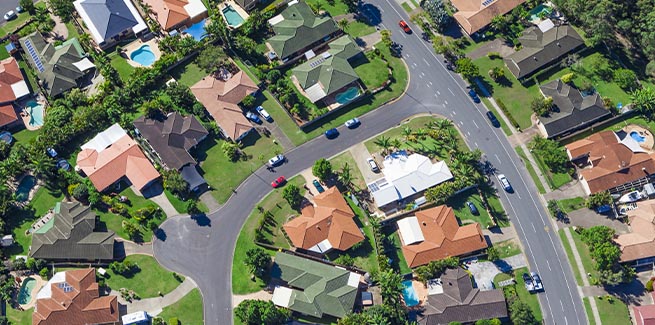A new report from the Bankwest Curtin Economics Centre has assessed housing affordability in WA against New South Wales and Queensland.
The research has found more WA residents are ranking their housing as affordable, despite Perth now ranking third among state capitals for annual growth in the price of established house, behind Hobart (up 6.6 per cent) and Sydney (5.3 per cent).
WA housing loans also reached a historic peak in February this year, with around $2.4 billion in loans allocated to the housing sector, twice the value of the previous year. Housing loans to investors reached $452 million in April, the highest loan commitment to investors in WA since 2015.
But local first home buyers have been the “big winners” following on from the government’s targeted stimulus, according to report co-author and director of the Australian Housing and Urban Research Institute’s Curtin University research centre, Steven Rowley.
WA first home buyers also took a larger slice of new loan commitments in comparison to NSW and Queensland at over 40 per cent for much of the last ten years.
Mr Rowley noted rookie buyers had also received a greater share of new home loans than non-first home buyers, in each month from August 2020 to January 2021, for the first time since 2009.
“Almost half of those who purchased in the last six months said government incentives allowed them to bring forward their decision to purchase and 43 per cent of those purchasing in the last two years stated they would not have been able to buy without the incentives,” Mr Rowley said.
Such incentives which included grants and stamp duty relief, could see first home buyers in WA access almost $70,000 to buy their first home.
There had also been 16,391 new build HomeBuilder applications in WA, compared to 16,266 in NSW and 21,871 in Queensland, as well as a further 22,671 WA Building Bonus applications.
The main barrier to home ownership, for 70 per cent of potential purchasers, was the deposit.
Lower interest rates driving affordability ratings
Perth’s residential property price index had risen by 9.6 per cent to 109.2 between December 2019 and March 2021.
But, 53 per cent of WA respondents regarded their house as affordable, rising from 39 per cent in 2015. Two fifths of people in WA renting or owning with a mortgage were paying more than 30 per cent of their income on housing cost, dropping by 5 per cent from 2019, and 8 per cent lower from 2015.
There had also been a decline in the proportion of households having difficulty meeting housing costs, with the proportion frequently struggling falling from 24 per cent in 2015 to 11 per cent in 2021.
Amity James, report co-author and deputy director of the Australian Housing and Urban Research Institute’s Curtin University Centre, noted the increase in low and moderate income households regarding their housing as affordable was partly driven by lower mortgage interest rates.
“There have also been big improvements as to how housing costs affect various life domains such as mental and physical health, social life and spending on children,” Dr James said.
But a number of households remained vulnerable and or had not seen affordability improvements. The report stated 40 per cent of respondents were finding high housing costs were affecting their mental health.
Private renters had the most difficulty meeting housing costs, with 34 per cent regularly struggling, compared to 26 per cent of those with a mortgage.
Report co-author and Bankwest Curtin Economics Centre director Alan Duncan commented the divide between owner-occupiers and renters is likely to increase in the coming months, as pressure continues on the already tight rental market.
“Rents in WA have increased by $60 per week on average since September 2020 because of high rental demand and limited supply of houses available to rent, and are likely to increase further now that the moratorium has lifted,” Mr Duncan said.
“If rents were to increase by 10 per cent, this would have a major impact on the financial wellbeing of more than 100,000 renters in WA, disproportionately affecting those receiving rent assistance.”
One in five one-parent family households rated their housing as unaffordable, with 40 per cent paying more than 30 per cent of their income on housing costs.
But Mr Rowley expects increased housing stock will eventually ease rental price pressures.
He noted a 118 per cent surge in the number of dwellings approved in WA over the year to April.
“Based on first home buyers applying for HomeBuilder and the Building Bonus scheme alone, there could be around 10,000 households leaving the private rental market over the next 6-12 months, which will ease pressure on the rental market, but provides little relief to those currently searching for accommodation or dealing with rent increases,” Mr Rowley said.
[Related: Qld races ahead in property settlements: PEXA]
 ;
;
